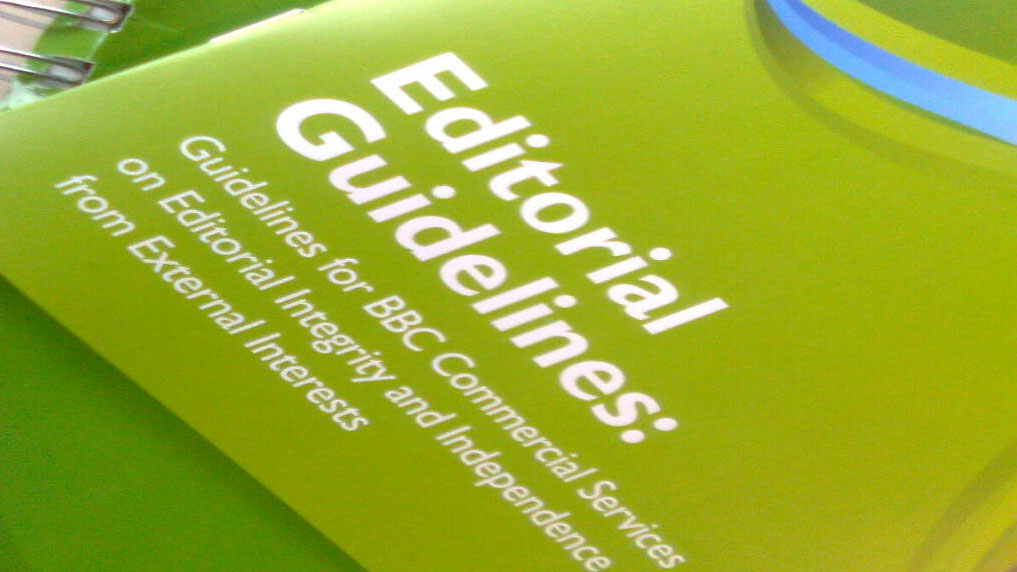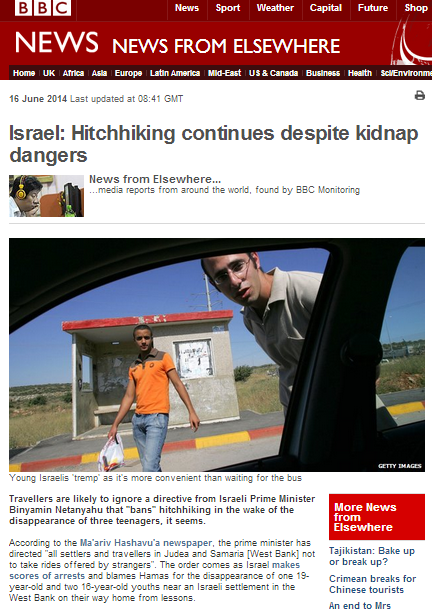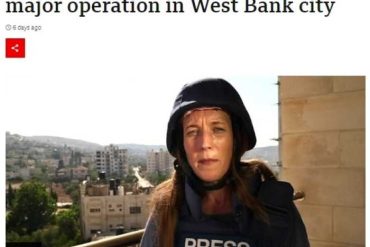The September 2nd edition of BBC Radio 4’s ‘Today’ programme included an item relating to events from the previous day which was introduced by presenter Martha Kearney (from 38:20 here) as follows: [emphasis in italics in the original, emphasis in bold added]
Kearney: “There’ve been clashes between Israel and the militant group Hizballah along the Lebanese border. Let’s talk now to Barbara Plett Usher, our correspondent in Jerusalem. And at the outset, Barbara, just explain to us why this is…ahm…such an important area. There has been actually war – hasn’t there? – between Israel and Hizballah…eh…around southern…southern Lebanon.”
As readers may know, while posted in Israel in 2004 Barbara Plett Usher produced a report which is still available online about Yasser Arafat that was described in a Telegraph editorial thus:
“Many listeners to the BBC were rightly outraged last week by the broadcast from its Middle East correspondent, Barbara Plett, in which she cloyingly described how she wept as Yasser Arafat was airlifted from Ramallah for medical treatment.
She said: “When the helicopter carrying the frail old man rose above his ruined compound, I started to cry . . . without warning.” Almost as a footnote, she later admitted that an “ambivalence towards violence” was one of his failings. […]
Ms Plett’s flood of feeling is just the most overt and recent manifestation of a pro-Palestinian bias endemic within the BBC. As a publicly-funded organisation, it should remember that it is not paid to take sides. As things stand, however, we might conclude that Mr Arafat’s culpable “ambivalence towards violence” is echoed by our national broadcaster.”
The BBC received a large volume of complaints concerning that item and in 2005 the BBC governors ruled that Plett Usher’s report “breached the requirements of due impartiality”.
That apparently has not deterred the BBC from sending Barbara Plett Usher – who has been reporting from the US in recent years – back to Israel.
Radio 4 listeners heard the following:
Plett Usher: “It is an important area because it’s the front line for conflict between Israel and Hizballah but the thing that’s interesting is that there hasn’t been much conflict between them for the past thirteen years. They fought a major war in 2006 but there’s been a sort of uneasy ceasefire between them since, so this flare-up is the first kind of clash we’ve seen like this in years.”
That of course is inaccurate. Incidents that have taken place along the Israel-Lebanon border since the end of the 2006 conflict include the planting of explosive devices in February 2007, the detonation of two explosive devices in March 2014, the detonation of explosive devices and the injury of two IDF soldiers in October 2014, the killing of two IDF soldiers and wounding of seven others in an attack using anti-tank missiles in January 2015 and the detonation of an explosive device in January 2016. In December 2018 the IDF commenced Operation Northern Shield to locate and destroy cross-border tunnels dug by Hizballah which were definitely not part of any “sort of uneasy ceasefire”.
Kearney: “And what’s been happening?”
Plett Usher: “So the Hizballah [sic] fired a number of anti-tank missiles at Israeli military positions and they received quite a large incoming return fire as a result. They claim to have killed a number of people although the Israelis said that wasn’t the case. Now the point here is that the Israelis had been expecting some kind of confrontation because there’s been tensions rising over the past week. A number of drone strikes in Lebanon and Syria attributed to Israel has meant that Hizballah has said it would retaliate.”
The August 25th strikes in Syria – which were not “attributed” because Israel immediately claimed them – were not carried out using drones as claimed by Plett Usher but did target IRGC drones intended for use in an attack against Israel. Plett Usher failed to inform listeners of the relevant fact that that two Hizballah operatives were killed in that strike before continuing:
Plett Usher: “In particular there was a drone strike in Beirut, the capital city of Lebanon, which Hizballah felt that’s its stronghold and it needed to respond. Now the Israelis did not confirm they carried out that strike but they did say that they were trying to prevent the…eh…the development of long-range precision missiles which is something they’re very concerned about. They believe Iran is helping Hizballah do that. So that was what was building ahead of time and then you had this flare-up.”
Israel does not “believe” that Iran is helping Hizballah to develop precision-guided missiles – it has solid evidence some of which was made publicly available four days before Plett Usher made this report, meaning that there was no justification for her use of the term “believe”.
As we see Barbara Plett-Usher produced a report which, despite being relatively short, was replete with basic inaccuracies and failed to provide Radio 4 listeners with the wider context of UN SC resolution 1701 and its relevant call for all armed militias to be removed from southern Lebanon.
What Barbara Plett-Usher is doing in Jerusalem and how long she is scheduled to be there is unclear. What is already apparent is that BBC audiences are not getting accurate reporting which will “build people’s understanding”.
Related Articles:




